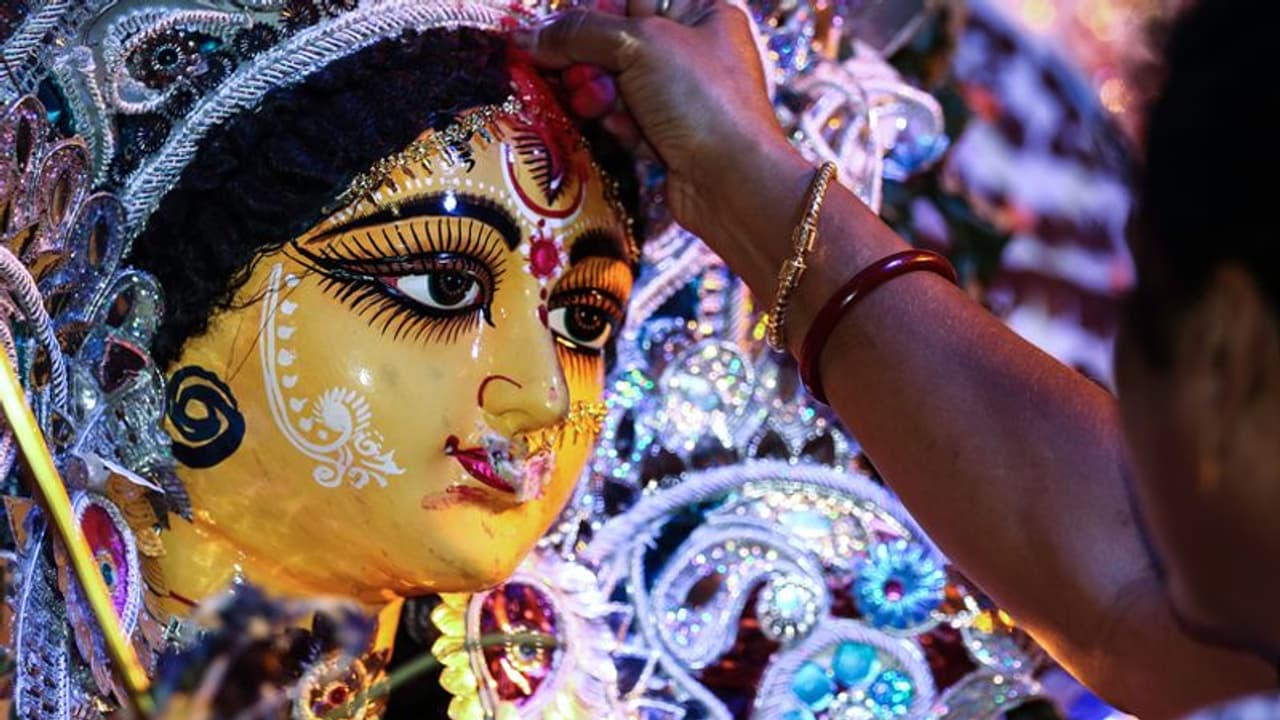Navratri 2021: Know everything about history, significance of the 9-day festival
Navratri is a Hindu festival commemorates the heavenly Goddess Durga, who conquered the demon king Mahishasura in a fight.

The 10-day event is celebrated with great grandeur and enthusiasm throughout India. On this occasion, Goddess Durga is worshipped; she is a symbol of power. Navratri means "nine nights," It is one of the most important Hindu holidays, beginning on October 7th this year. This fortunate event will run till October 15th. Navratri is a Hindu festival commemorates the heavenly Goddess Durga, who conquered the demon king Mahishasura in a fight.

History of the festival
According to mythology, Lord Brahma promised the demon king Mahishasura immortality since only a woman could vanquish him.
No one could stop Mahishasura from attacking the three kingdoms of Trilok, which are Earth, Heaven, and Hell. Lord Brahma, Lord Vishnu, and Lord Shiva's powers were then combined to become Goddess Durga.
The result was a 15-day fight between Mahishasura and Goddes Durga, during which the demon king changed his shape to mislead the goddess. Goddess Durga slayed him with her trishul. On the day of Mahalaya, Mahishasura was killed.
Also Read | Navratri 2021: 7 ways to celebrate Durga pooja amid pandemic with zeal, enthusiasm
Significance and celebration of the festival
Goddesses Shailputri (Day 1), Brahmacharini (Day 2), Chandraghanta (Day 3), Kushmanda (Day 4), Skandamata (Day 5), Katyayani (Day 6), Kaalratri (Day 7), Mahagauri (Day 8) and Siddhidatri (Day 9) are honoured throughout the course of nine days.
During this occasion, relatives and friends gather to celebrate following their customs. During the festival, dandiya is played throughout Gujarat, and most people fast and spend their time praying.
Durga Puja is observed in the east of India, while Ram Leela, a visual retelling of the Ramayana, is observed in the north, and the nine-day festival culminates with Dussehra, during which straw effigies of Ravana are burnt to symbolise the triumph of virtue over evil.
Explore the latest Lifestyle News covering fashion, wellness, travel, Food and Recipes, and more. Stay updated with trending Health News, fitness tips, and expert insights to inspire your daily living. Discover personalized lifestyle trends that keep you stylish and informed. Download the Asianet News Official App from the Android Play Store and iPhone App Store for everything that adds value to your everyday life.